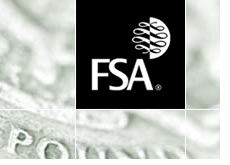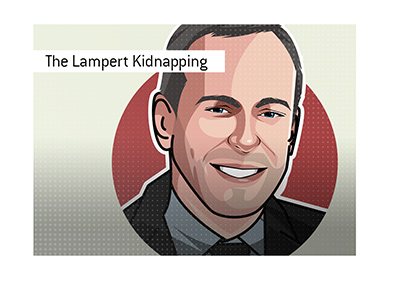Some Hedge Funds Are At the Mercy of the FSA
 The temporary ban on the short-selling of certain firms in the United Kingdom will prove to be disastrous for some hedge funds, as they were forced to cover their positions at inopportune times and potentially suffer large losses.
The temporary ban on the short-selling of certain firms in the United Kingdom will prove to be disastrous for some hedge funds, as they were forced to cover their positions at inopportune times and potentially suffer large losses. The FSA (Financial Services Authority) recently named 32 companies in which short sales would be forbidden. Some of the companies included in the ban were Barclays Plc, Lloyds TSB Group Plc and HBOS Plc. The ban was put in place to provide a "calming effect" for the markets in the UK, and will be in place until January of 2009. The FSA also required that there must be a daily disclosure of existing short positions in "financial companies of more than 0.25 percent."
Many hedge funds had piled on the rapidly falling financial sector in the past few weeks, looking to bank some quick gains from the imploding sector. Other hedge funds had long-standing and profitable short positions.
Since hedge funds operated in a shroud of secrecy, they are obviously not too pleased about having to disclose their short positions. This led many to either cover their positions completely, or at least cover enough so that they wouldn't be forced to disclose their positions.
Combine a concentrated amount of short covering with a much-relieved market overjoyed by a potential bailout of financial firms in the United States, and you have a recipe for disaster for some hedge funds with newly entered short positions.
All of the firms on the banned list made significant jumps from early Thursday morning to the close of trading on Friday.
Keep in mind that many hedge funds had sizable short positions, sizable options bets or a combination of the two. For those with long-established short positions, they can take a smaller gain than planned and move forward.
For those who made sizable bets against the sector recently, they could be looking at some sizable losses, especially if they intended to increase their gains with aggressive options positions.
There was some thought that there was an organized cabal of hedge funds that were plotting and planning to bring some of the biggest firms in the financial sector down. If this was the case, then these firms will have sizable short and options positions that will need to be unwound.
If some firms decide to maintain their short positions and go the route of publicly disclosing said positions, then they will run the risk of incurring the wrath of the public when these positions are disclosed. People are looking for scape-goats right now, and I don't think that very many hedge funds will want to show sizable short positions on their books.
Hedge funds are furious about the rules and how fast they were implemented. Many were caught flat-footed, and will now be forced to incur steep losses on their positions. Short-selling is an integral part of most hedge fund strategies, and many hedge fund managers are worried that the ban will be extended to other sectors, or perhaps even made permanent.
Some are crowing that hedge funds are getting their "comeuppance" - however, as we've said before, the recent problems really have nothing to do with hedge funds. They were merely looking to profit from a much more serious problem that was rippling through the markets. Pointing your fingers at the hedge fund managers and identifying them as the root cause of all the problems is ridiculous and short-sighted. Banning the short-selling of certain firms will not be the magic bullet for the markets that some people think it might be.
All just my opinion of course.
Filed under: Hedge Fund News | The Economic Meltdown



